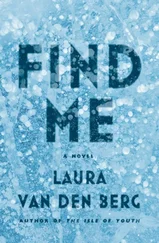“Help with what?” They were sitting at the kitchen table. A rifle lay across his lap. Last week he’d torn out the landline and now a bundle of red and green wires dangled from the kitchen wall. They had a radio that got two stations, local news and gospel music; in the background she could hear the drone of an organ. She kept telling herself that the tax notices and her father’s new habits would all pass eventually, like a hunting season.
“With the soul of this land,” he told her. “With the soul of this family.”
They’d turned the generator off for the night and the kitchen was cold. Dana had wrapped herself in a wool blanket. The room was lit by an oil lamp. In the half-dark, she could see how much her father’s face had changed. The crescents under his eyes had hollowed out; his pupils looked darker, his cheekbones and chin sharper. His skin carried the sheen of a light sweat, even though it was freezing outside. The surface was falling away. She was finally seeing what lay beneath.
No one from the bank or the government ever came to Elijah. The snow kept falling. The river stayed frozen. By February the notices had stopped appearing in the mail. It seemed they had been forgotten. Still things did not go back to the way they were before. Dana’s father thought it was a trick. He started working on a secret project in the barn. His face kept changing. At night she could hear her parents arguing and sometimes Dana would find her mother crying as she collected eggs from the chicken coop or squeezed milk from the cow. Both the mothers seemed exhausted by the vigilance they’d been required to keep. They lost the energy for homeschooling. When they gave the children their schoolbooks and sent them away, Dana’s father didn’t notice.
Of course, the children weren’t really children anymore. There was only so much time they could spend shooting skeet and patrolling the property and flipping through musty textbooks. The idle time sparked a curiosity they had never felt before; it was as though they had each swallowed an ember and now it sat simmering in their stomachs. One afternoon Cora had this idea to wait on the road for a car to pass. They had some sense of what the outside world was like. They had accompanied Dana’s father on trips to the farm store and the P.O. in West Plains. Once a month they went with the mothers to Fairfield’s Discount Grocery, just a few miles down the road in Caulfield. Every fall they drove to visit Dana’s grandparents, who had a computer and a TV, in Arkansas. But they had never done anything on their own, just the four of them.
After an hour of waiting, a truck rolled by and they hitched a ride to Miller’s One Stop in Tecumseh. They wandered the dusty gas station aisles. Under the glare of fluorescent lights, Dana stared at the rows of Cokes and the freezer full of ice-cream sandwiches. Before they hitched a ride back, Cora pocketed a tube of Chapstick and a plastic comb. At home, they mashed the Chapstick into Pinky’s hair and then combed it so it stood upright.
On another outing, they discovered that, five miles beyond the gas station, there was a town with a movie theater and a liquor store. The theater had an old-fashioned marquee and two screens. One of the films was always R-rated. The girls started talking the liquor store owner into selling them cigarettes; Pinky was the lookout. They would smoke behind the store and then toss the butts into a field. Once, they let Pinky smoke. He coughed and dropped the cigarette and Cora flicked his ear. They were always back well before dark. Their parents didn’t seem to know they’d been gone, or catch the strange smells they brought home. The farm was more than two hundred acres, and Dana figured they thought their children were out on the land, like they’d always been. But their children were learning quickly. They were learning that the outside world and the pleasures it held weren’t so bad. They were learning that they had never really believed in God; they had only ever believed in fear.
After they stole a map of American highways from the gas station, they spent hours sitting on the floor of Pinky and Dana’s room, tracing the lines out to California and Oregon and Florida.
“Here.” Cora lay on her side and pointed at San Luis. She had been eating sugar cubes from a cardboard box and her fingertip glistened. “That’s where we should go.”
Jackie was interested in traveling south, to New Orleans or Fort Lauderdale, but Cora said those places were too hot. Dana was intrigued by the small patchwork of northern states. They had studied geography during homeschooling, but now they were looking at the map in an entirely new light, as being full of places they might one day go.
“Too cold,” Cora said when Dana touched the hook of land extending out of Massachusetts.
“Do you promise to take me with you?” Pinky asked. He didn’t look his age, thirteen. He could have passed for ten or eleven. He reminded Dana of a rabbit; he had the same nervous nature and quick-beating heart. He never requested any particular place. He just wanted to make sure he wasn’t left behind.
“We’ll see.” Cora ran her finger along the edge of California.
“Of course we’ll take you,” Dana said. He wasn’t cut out for life in Elijah. It was too rugged, with the target practice and the long winters and the dead animals. She didn’t yet know that he would be even more ill-prepared for the life she and her cousins would choose.
One night, in the early spring, they packed a single suitcase, hitched a ride to West Plains, and kept going. That was six months ago. Their parents never came looking for them, or if they did, they must not have looked very hard. Maybe they thought their children had fallen in with the government or the devil and were beyond hope. Or maybe they just didn’t know how to search.
At first Dana thought leaving Elijah meant getting away from how things were on the farm, but now she thinks the past is like the hand of God, or what she imagines the hand of God would be like if God were real: it can turn you in directions you don’t want to be turned in. They are still in a battle with the laws of the land. The laws that say they shouldn’t steal or point guns at people. And she feels the same resistance to these laws that her father must have felt toward paying taxes. Why not do these things? she found herself thinking. Who is going to stop us?
Their first robbery was at a feed-and-grain store. They wanted money to buy a used car. It was so simple. They had stolen a shotgun from the bed of a truck they’d hitched in. All they had to do was walk inside. Dana told the teenage boy behind the counter to empty his register because that was a line she’d heard in one of those R-rated movies. She called him a cocksucker, too, since criminals seemed to say that all the time and she wanted him to know that she was to be taken seriously.
The boy gave them everything he had. Feed-and-grain stores aren’t used to being robbed.
3.
The night before they hit the bank, Pinky tests his robot in the parking lot. Dana is the only one interested enough to watch. The floodlights are on; tiny bugs hover around the glow. The robot is covered in a pillowcase. It stands on the black asphalt like a ghost. Dana is smoking one of Jackie’s cigarettes. She doesn’t smoke much anymore, but it’s the night before a job and that always makes her nervous. Once the thing is started, there’s no sense in worrying because it’s done, it’s over. You can’t rewind. But being on the edge, that’s the hardest part. It’s like standing in front of a burning building and knowing that it won’t be long before you have to walk inside.
She sits on the ground and watches her brother peel away the pillowcase. The robot looks like a kid’s science project. It has a round silver head and black buttons for eyes, an economy-size tomato soup can for a body, and large plastic suction cups for feet. It doesn’t have any arms. Dana realizes that, for some reason, whenever she thinks of a robot, the first thing that comes into her mind are its arms.
Читать дальше












